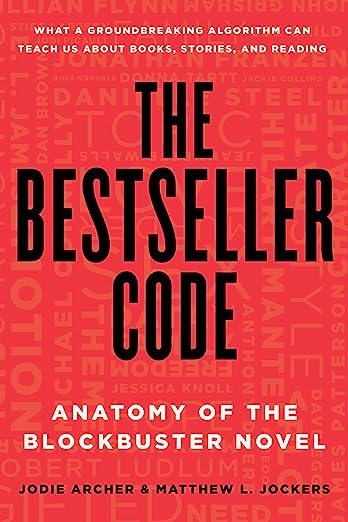Just a heads up! I am merely a student who has taken the course (Entertainment Industry Economics) and compiled a list of the books recommended by our professor in the first class. This post has no official connection with National Taiwan University or Professor Fong. I'm just hoping to pass along these valuable resources to those who might need them.
Reported by CommonWealth Magazine:Students need to submit their CVs to enroll in a course, with an acceptance rate of less than 10%. Why is the entertainment industry looking for talents at National Taiwan University?
-
Rockonomics: A Backstage Tour of What the Music Industry Can Teach Us about Economics and Life
The author of "Rockonomics" is Alan B. Krueger, former chief economic advisor to President Obama, a PhD in Economics from Harvard University, an Economics Professor at Princeton University, a scholar of labor economics and econometrics, and one of the top 50 economists in the world. He served as chief economic advisor to Clinton and Obama.
When the United States was facing an economic depression, he was invited to give a speech called "Rockonomics" to explain the similarities between the American economy and the music industry, and where economic policy can learn from music. President Obama was so impressed with the speech that he required all high-level White House staff to circulate it and told everyone around him, "You should all read this."
This book encapsulates all the key principles of economics and provides a brilliant interpretation of the real logic behind the cool and cruel superstar market and best-selling products. The examples range from pop music sensation Taylor Swift to business mogul Jeff Bezos. Take a look at how the top 1% put the principles of Rockonomics into practice!
The Bestseller Code: Anatomy of the Blockbuster Novel
"The Bestseller Code" is a book co-authored by Jodie Archer and Matthew L. Jockers. In it, they attempt to unlock the secrets of writing best-selling novels through the analysis of data and algorithms.
Both Jodie Archer and Matthew L. Jockers are experts in literature and artificial intelligence. They developed an algorithm for deep analysis of book content, which they applied to thousands of novels from the 20th and 21st centuries. They found some surprising patterns and themes that repeatedly appear in many best-selling novels.
The book explains many intriguing findings, including which themes are more likely to succeed, the gender ratio of best-selling authors, and how the style of the opening and ending can influence a book's success. It's a must-read for creators! It also provides readers with a new understanding of why some books are more appealing in the market.
Streaming, Sharing, Stealing: Big Data and the Future of Entertainment (The MIT Press)
"Streaming, Sharing, Stealing: Big Data and the Future of Entertainment" is a book co-authored by Michael D. Smith and Rahul Telang.
In this book, they introduce how companies like Netflix and Amazon collect and analyze consumer data to provide personalized content recommendations and make more accurate business decisions. For example, the popular TV series "House of Cards" was not favored at the time because the industry judged based on experience that political dramas wouldn't be popular. But Netflix, which invested in "House of Cards", proved with big data that these subjective biases were far less practical and precise than data.
In the past, large record companies, publishers, and film companies used scale to manage two types of scarce resources to create value: the scarcity of distribution and publicity channels; the scarcity of financial and technical resources needed to create content. This business model controlled the way consumers obtained content, and large companies thus extracted value from the market using this model.
However, now the situation is different. With the advancement of computers and storage devices and the popularization of global digital communication networks, these originally scarce resources are becoming more and more abundant. Not only have we entered an unprecedented era of technological disruption, but the technological changes facing the creative industry are also fundamentally different from before: the viability of long-tail markets, the prevalence of digital piracy, creators having many new production and marketing options, downstream distributors' ability to control detailed data, etc. These changes have shifted power from those old-fashioned businesses that control content to those companies that control customers.
Save The Cat! The Last Book on Screenwriting You'll Ever Need
★Consistently topping the charts on Amazon
"Save the Cat!" is a screenplay writing guide written by Blake Snyder, who made millions selling scripts and is hailed as Hollywood's most successful original screenwriter. The term "save the cat" comes from a common movie strategy used to garner sympathy for the protagonist early in the story. For example, the protagonist might "save a cat" (perform an action that garners sympathy or admiration from the audience) early in the film to win the audience's favor.
In this book, Snyder provides a practical framework for guiding screenplay writing. He also explains some other rules of the film industry, such as how a screenplay should have a plot twist every few minutes and how every successful screenplay must have a strong and clear theme.
Snyder's writing style is direct and humorous, and his advice is based on his experience as a successful screenwriter and consultant. His insights make this book a popular read for film school students and professional screenwriters alike.
In the sequel, "Save the Cat! Goes to the Movies", Snyder further expands his screenplay writing theory. He believes all good movie stories can be divided into ten different types and further analyzes
-
Blockbusters: Hit-making, Risk-taking, and the Big Business of Entertainment
"Blockbusters: Hit-making, Risk-taking, and the Big Business of Entertainment" is a book published in 2013 by Anita Elberse, a professor at Harvard Business School who specializes in studying strategies in the entertainment industry.
In this book, Elberse delves into the workings of the entertainment industry — including films, music, television, books, and sports — and why the industry tends to allocate massive resources towards a small number of large-scale projects, or "blockbusters." She posits that this "blockbuster strategy" yields the greatest returns for businesses.
Elberse's research unveils the economic principles behind this strategy and demonstrates, through numerous case studies, how this strategy operates in practice. These cases include Universal Pictures' film investment strategies, Lady Gaga's music production strategy, and the operational strategies of sports leagues such as the NFL and the English Premier League.
Information Rules: A Strategic Guide to the Network Economy
"Information Rules: A Strategic Guide to the Network Economy" is a book written in 1998 by Carl Shapiro and Hal R. Varian. The book delves into and elucidates the rules of the network economy.
Hal R. Varian, Google's Chief Economist and a professor of economics, business, and information management at UC Berkeley, is a significant scholar in the field of microeconomics, with his textbooks being used in numerous universities. Carl Shapiro, a professor at UC Berkeley's Haas School of Business and the school's Transamerica Professor of Business Strategy, primarily specializes in competition policy, industrial organization, innovation, and intellectual property rights. He has extensive policy experience in Washington D.C., including serving as the Chief Economist in the Antitrust Division of the U.S. Department of Justice and a member of the Council of Economic Advisers.
In the book, they explore how economic rules are being reshaped in the digital age. They discuss many significant insights about this economic environment, including network effects, lock-in effects, positive feedback loops, and standards competition.
The book is aimed at business leaders, corporate strategists, and economists. By providing a deep understanding of the economic rules of the digital age, it helps readers understand how to gain a competitive edge in the digital economy. The book's practical case studies and theoretical models allow readers to better understand strategic operations and competition patterns in the digital economy.
Matchmakers: The New Economics of Multisided Platforms
"Matchmakers: The New Economics of Multisided Platforms" is a book written by David S. Evans and Richard Schmalensee and published in 2016.
The book mainly studies the economics of multisided platforms, including how to build, operate, and succeed. Multisided platforms (also known as multisided markets) refer to business models that connect two or more independent customer groups, like Uber connecting drivers and passengers, Airbnb connecting homeowners and guests, and Amazon connecting sellers and buyers.
The book discusses numerous real-life cases, including well-known enterprises like online payment company PayPal, online trading platform eBay, and smartphone developer Apple. Not only does it analyze the successes of these multisided platforms, but it also delves into the challenges and difficulties they may face.
Through theoretical and empirical analysis, Evans and Schmalensee reveal the key factors to the success of multisided platforms, such as attracting and retaining customers from both sides, pricing to satisfy both sides, and dealing with the challenges posed by competitors.
Thank you very much for reading; I am RosyArts.
Please like, comment, and share! Your support is my greatest motivation to write!
For more related articles, welcome to the RosyArts industry dedicated page:Link
Recommended Reading:
NVIDIA's Jensen Huang: Rise of AI! 9 Major Innovations Summarized | COMPUTEX Speech







